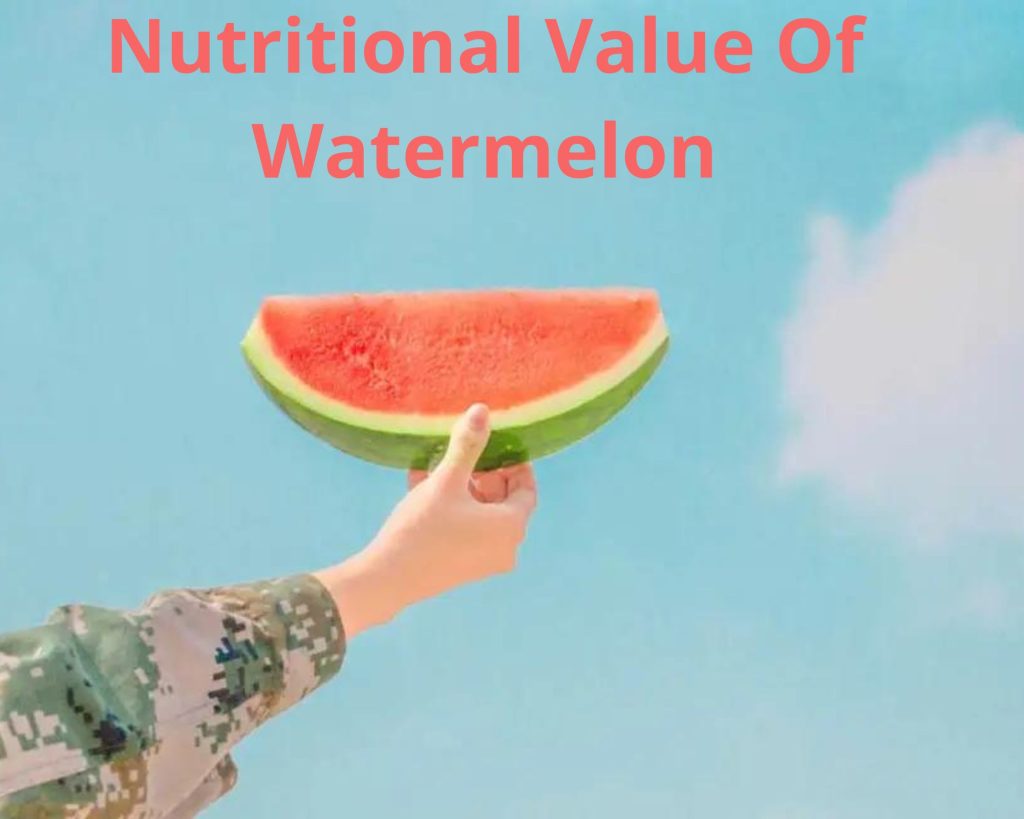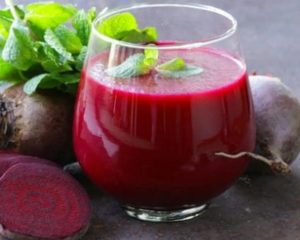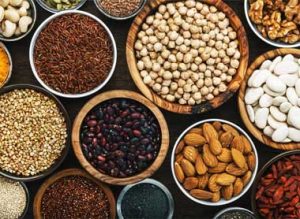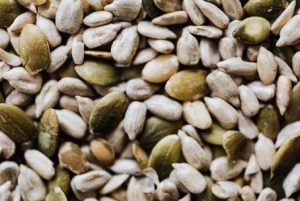
Watermelon, with its juicy and refreshing nature, is a summer favorite for many. But did you know that this delicious fruit also offers a myriad of health benefits? Bursting with essential vitamins, minerals, and antioxidants, watermelon is a nutrient-rich option that can enhance your overall well-being. In this article, I am going to explore the nutritional value of watermelon and shed light on why it deserves a prime spot in your diet.
Hydration and Electrolyte Balance:
Watermelon, as a refreshing and juicy fruit, lives up to its name by being one of the most water-rich foods available. With an astonishing water content of around 92%, this summertime favorite proves to be an exceptional choice for keeping hydration levels in check, especially during hot and humid weather when the risk of dehydration is higher.
Proper hydration is fundamental for our bodies to function optimally. Water serves as the foundation for various physiological processes, and maintaining adequate hydration is essential for overall health and well-being. One of the key functions of water is regulating body temperature. When the external temperature rises, our bodies sweat to cool down. Sweating is a natural cooling mechanism that dissipates excess heat. However, this process can lead to significant water loss, potentially resulting in dehydration if fluids are not replenished adequately. Consuming watermelon can help replenish lost fluids due to its high water content, aiding in preventing dehydration and maintaining a stable body temperature.
Moreover, watermelon plays a beneficial role in supporting the digestive system. The water and fiber in watermelon contribute to healthy bowel movements and regularity. Adequate hydration is crucial for maintaining soft and well-formed stools, reducing the risk of constipation. Additionally, the natural sugars found in watermelon provide a mild laxative effect, further promoting digestive health. The combination of water and fiber in watermelon not only helps keep things moving smoothly but also supports the growth of beneficial gut bacteria, fostering a healthy gut environment.
Beyond its hydrating properties, watermelon contains essential electrolytes that play a crucial role in maintaining the body’s fluid balance. Electrolytes, such as potassium and magnesium, are minerals that carry an electric charge and are involved in numerous physiological processes. Potassium, in particular, is vital for proper muscle function, including the heart muscles, and helps regulate blood pressure. By including watermelon in your diet, you can contribute to achieving a healthy balance of these essential electrolytes, supporting proper fluid distribution in the body and promoting overall well-being.
Staying hydrated is particularly important during physical activity and exercise, as we lose additional fluids through sweating. In such situations, consuming watermelon can be a valuable strategy for rehydration, as it not only provides the necessary fluids but also offers a natural source of electrolytes to replenish what has been lost during exertion.
Furthermore, watermelon is a nutritious choice for those who struggle to drink enough water due to taste preferences or lack of interest. Instead of solely relying on plain water, adding watermelon to your daily diet can make hydration more enjoyable, especially for those who find it challenging to consume large volumes of water throughout the day.
Incorporating watermelon into your diet is easy and versatile. You can enjoy it on its own, sliced into juicy wedges, or dice it up to make a refreshing fruit salad. Watermelon can also be blended into smoothies, adding natural sweetness and hydration to your beverage. For an even more creative approach, try incorporating watermelon into savory dishes like salads, salsas, or gazpacho, showcasing the fruit’s versatility beyond traditional sweet treats.
Vitamin C Boosting as a Nutritional Value of Watermelon:
Watermelon, with its refreshing sweetness and high water content, is not only a delightful summertime treat but also a nutritional powerhouse, especially when it comes to vitamin C. Among its fruity peers, watermelon stands tall as a significant source of this essential vitamin. A single serving of this juicy fruit can provide up to 25% of the daily recommended intake of vitamin C, making it a fantastic way to fortify your body with this vital nutrient.
Vitamin C, also known as ascorbic acid, plays an indispensable role in supporting overall health and well-being. One of its most well-known functions is its contribution to a robust immune system. The immune system serves as the body’s defense mechanism, protecting against harmful pathogens such as bacteria and viruses. Vitamin C enhances the function of various immune cells, including white blood cells, which are essential in detecting and neutralizing invading microorganisms. By bolstering the immune system, vitamin C helps reduce the risk of infections and aids in a quicker recovery from illnesses.

Collagen, often referred to as the “building block” of the body, is a protein that provides structural support to various tissues, including skin, bones, and tendons. Vitamin C plays a pivotal role in collagen synthesis, the process by which collagen is produced and maintained in the body. Collagen is especially vital for healthy skin, as it contributes to skin elasticity, firmness, and a youthful appearance. Regular intake of vitamin C through sources like watermelon can help promote healthy skin and delay the visible signs of aging, such as wrinkles and fine lines.
Moreover, vitamin C serves as a potent antioxidant, safeguarding the body against the damaging effects of free radicals. Free radicals are unstable molecules that can cause oxidative stress, leading to cellular damage and an increased risk of chronic diseases such as cancer, heart disease, and diabetes. As an antioxidant, vitamin C neutralizes these harmful free radicals, helping to prevent cellular damage and supporting overall health.
In addition to its immune-boosting, collagen-promoting, and antioxidant properties, vitamin C also aids in the absorption of iron from plant-based sources. Iron is an essential mineral that plays a key role in oxygen transport throughout the body and is crucial for energy production and overall vitality. By enhancing iron absorption, vitamin C contributes to optimal iron levels and helps prevent iron deficiency anemia, a common nutritional deficiency.
The benefits of vitamin C extend beyond its individual properties. It also works synergistically with other nutrients, such as vitamin E, to enhance their antioxidant capabilities and overall effectiveness in supporting good health. This illustrates the importance of consuming a diverse range of nutrient-rich foods, like watermelon, to achieve a well-rounded and balanced nutritional intake.
Including watermelon in your daily diet is not only a tasty way to enjoy a hydrating and low-calorie snack, but it also offers a host of health benefits through its generous vitamin C content. Whether you savor watermelon slices on their own, blend them into refreshing smoothies, or toss them into fruit salads, you’ll be doing your body a favor by providing it with the necessary nutrients to thrive.
Lycopene and Heart Health:
Lycopene, the brilliant red pigment that gives watermelon its luscious color, is not only a feast for the eyes but also a boon for heart health. As a powerful antioxidant, lycopene has been the subject of numerous scientific investigations, and the emerging research highlights its potential in promoting a healthier cardiovascular system.
Heart disease remains one of the leading causes of mortality worldwide, emphasizing the importance of adopting heart-protective dietary habits. Fortunately, watermelon, with its generous lycopene content, presents a delicious and refreshing way to support heart health naturally.
One of the significant contributors to heart disease is high cholesterol levels. Elevated cholesterol in the blood can lead to the formation of plaque on artery walls, restricting blood flow and increasing the risk of heart attacks and strokes. However, studies have shown that lycopene can aid in reducing cholesterol levels, particularly low-density lipoprotein (LDL) cholesterol, which is often referred to as “bad” cholesterol. By lowering LDL cholesterol, lycopene helps mitigate the buildup of arterial plaque, promoting better blood flow and overall heart function.
In addition to its cholesterol-lowering effects, lycopene is also known for its anti-inflammatory properties. Chronic inflammation is increasingly recognized as a key player in the development and progression of heart disease. By combatting inflammation in the blood vessels and heart tissues, lycopene acts as a shield, guarding the cardiovascular system against potential damage and dysfunction.

Furthermore, oxidative stress is another factor that contributes to heart disease. When free radicals outnumber the body’s antioxidant defenses, cellular damage can occur, increasing the risk of heart-related issues. As a potent antioxidant, lycopene neutralizes free radicals, acting as a frontline defense against oxidative stress and bolstering heart health.
The benefits of lycopene extend beyond its direct effects on heart health. Some studies have suggested that this remarkable antioxidant may also promote healthy blood pressure levels. Maintaining optimal blood pressure is vital for heart function, as high blood pressure can strain the heart and lead to cardiovascular complications. By incorporating watermelon, a lycopene-rich fruit, into your diet, you may support the body’s natural regulation of blood pressure, contributing to a healthier cardiovascular system overall.
Citrulline for Exercise Performance:
Another nutritional value of watermelon is citrulline, an amino acid with several impressive properties. Citrulline has been shown to improve blood flow, enhance athletic performance, and reduce muscle soreness. By increasing nitric oxide production, citrulline aids in relaxing and dilating blood vessels, leading to improved circulation and oxygen delivery to muscles during physical activity.
In addition to its high water content, vitamin C, and essential electrolytes, watermelon has another nutritional gem hidden within its vibrant flesh – citrulline. This lesser-known amino acid boasts several impressive properties that can positively impact various aspects of health and athletic performance.
Citrulline has garnered attention for its potential to enhance blood flow and overall cardiovascular health. Studies have shown that citrulline can play a role in improving blood circulation by increasing the production of nitric oxide in the body. Nitric oxide is a vasodilator, meaning it helps relax and widen blood vessels, allowing for smoother blood flow. This effect can be particularly beneficial during physical activity when increased blood flow is essential for delivering oxygen and nutrients to working muscles. By facilitating improved circulation, citrulline contributes to enhanced exercise performance and endurance.
Athletes, in particular, have taken a keen interest in citrulline due to its potential ergogenic effects. Ergogenic aids are substances that can enhance physical performance and stamina. Citrulline’s ability to support blood flow can lead to better oxygen and nutrient delivery to muscles during workouts or competitions. This improved nutrient supply can delay fatigue, reduce exercise-induced muscle damage, and help athletes push harder and longer during intense training sessions or competitions.
Furthermore, citrulline has been associated with a reduction in muscle soreness and a faster recovery period after strenuous physical activities. Intense exercise can cause muscle damage and inflammation, leading to delayed onset muscle soreness (DOMS). By promoting better blood flow and oxygen delivery, citrulline can aid in reducing inflammation and promoting quicker muscle repair and recovery. This aspect of citrulline’s benefits can be particularly valuable for athletes and fitness enthusiasts who engage in regular intense training and want to optimize their recovery process.
Moreover, citrulline has been linked to potential benefits in maintaining cardiovascular health. Along with its role in promoting blood vessel dilation, some studies suggest that citrulline may positively impact blood pressure levels. By supporting healthy blood pressure, citrulline may contribute to reducing the risk of cardiovascular diseases, such as hypertension and heart disease. However, further research is needed to fully understand the extent of citrulline’s effects on long-term cardiovascular health.
Nutrient Density and Weight Management:
Watermelon is a nutritious fruit that provides an array of essential vitamins and minerals, all while being low in calories. Its high water and fiber content contribute to a feeling of fullness, potentially aiding in weight management. Substituting calorie-dense snacks with watermelon can help satisfy cravings while providing vital nutrients, making it an ideal option for those aiming to maintain a healthy weight.
Weight management is a multifaceted journey that involves balancing calorie intake and energy expenditure. In this regard, watermelon stands out as a smart choice due to its high water and fiber content. Foods that are rich in water and fiber have a unique ability to create a sense of fullness and satiety, which can help curb appetite and prevent overeating. By consuming watermelon, you can enjoy a satisfying snack without significantly adding to your caloric intake.

Furthermore, watermelon’s natural sweetness can be a healthier alternative to sugary snacks and desserts. High-calorie, processed snacks and sweets can contribute to weight gain and may lack essential nutrients that the body needs for proper functioning. By substituting these calorie-dense options with watermelon, you can indulge your taste buds while nourishing your body with vitamins, minerals, and hydration, making it a win-win situation for your health and waistline.
Incorporating watermelon into your daily diet can also support healthy eating habits in the long run. Its delightful flavor and refreshing nature make it a satisfying choice for those looking to curb cravings for less nutritious treats. When you reach for watermelon instead of high-calorie snacks, you are making a conscious effort to provide your body with nourishing foods that can contribute to your overall well-being.
Additionally, the hydrating properties of watermelon can aid in weight management. Proper hydration is essential for maintaining optimal bodily functions and supporting metabolic processes. Sometimes, our bodies may misinterpret thirst signals as hunger cues, leading to unnecessary snacking or overeating. By consuming watermelon, you not only nourish your body with essential nutrients but also promote proper hydration, helping you stay attuned to your body’s true hunger and satiety cues.
It’s essential to view watermelon as a part of a balanced and varied diet. While it can be a valuable addition to a weight management plan, it is not a magical solution for weight loss on its own. Achieving and maintaining a healthy weight involves a combination of factors, including regular physical activity, mindful eating, and overall lifestyle choices.
Eye Health and Vitamin A:
Eye health is a crucial aspect of overall well-being, and ensuring that we get the right nutrients to support our vision is essential. Vitamin A, found in abundance in watermelon, plays a vital role in maintaining good eyesight and promoting eye health.
Age-related macular degeneration (AMD) is a common eye condition that affects older individuals and can lead to vision loss. AMD occurs when the macula, a small central part of the retina responsible for sharp vision, deteriorates over time. Studies have shown that vitamin A can help protect the macula and delay the onset of AMD, reducing the risk of vision impairment in the later stages of life.
Moreover, vitamin A deficiency is one of the leading causes of night blindness. Night blindness is a condition where individuals have difficulty seeing in low-light conditions or at night. It occurs because the eye’s retina, particularly the rod cells responsible for night vision, require sufficient amounts of vitamin A to function optimally. By incorporating watermelon into your diet, you can provide your body with a natural source of vitamin A, helping to prevent night blindness and ensuring better vision during low-light situations.
In addition to vitamin A, watermelon contains other eye-nourishing nutrients such as lycopene and beta-carotene, which are powerful antioxidants. Antioxidants play a crucial role in protecting the eyes from oxidative stress, which can lead to various eye diseases and vision problems. The combination of these beneficial compounds in watermelon makes it a fantastic choice for supporting long-term eye health.
Nutritional Value of Watermelon In Brief:
Watermelon is a delicious and refreshing fruit that is packed with several essential nutrients. Here are some of the key nutrients found in watermelon:
- Water: As the name suggests, watermelon contains a high amount of water, which makes it an excellent choice for staying hydrated.
- Vitamins: Watermelon is rich in vitamin C, which helps support the immune system and promotes healthy skin. It also contains vitamin A, which is important for eye health, and vitamin B6, which is essential for brain function.
- Minerals: Watermelon contains several important minerals, including potassium, which is important for heart health, and magnesium, which is essential for bone health.
- Antioxidants: Watermelon is a rich source of antioxidants, such as lycopene and beta-carotene, which help protect the body from damage caused by free radicals.
- Amino acids: Watermelon contains a small amount of the amino acid citrulline, which is converted into arginine in the body. Arginine is important for maintaining healthy blood flow and heart health.
Overall, watermelon is a nutrient-rich fruit that can provide several health benefits when consumed as part of a balanced diet.
Conclusion:
To sum up, watermelon is not only a delightful and refreshing fruit but also a nutritional powerhouse. Packed with water, vitamins, minerals, antioxidants, and unique compounds like lycopene and citrulline, watermelon offers numerous health benefits. From hydration and immune support to heart health and exercise performance, this juicy fruit deserves its place in a well-balanced diet. So, next time you reach for a snack during the hot summer months, consider indulging in the goodness of watermelon while nourishing your body and delighting your taste buds.




